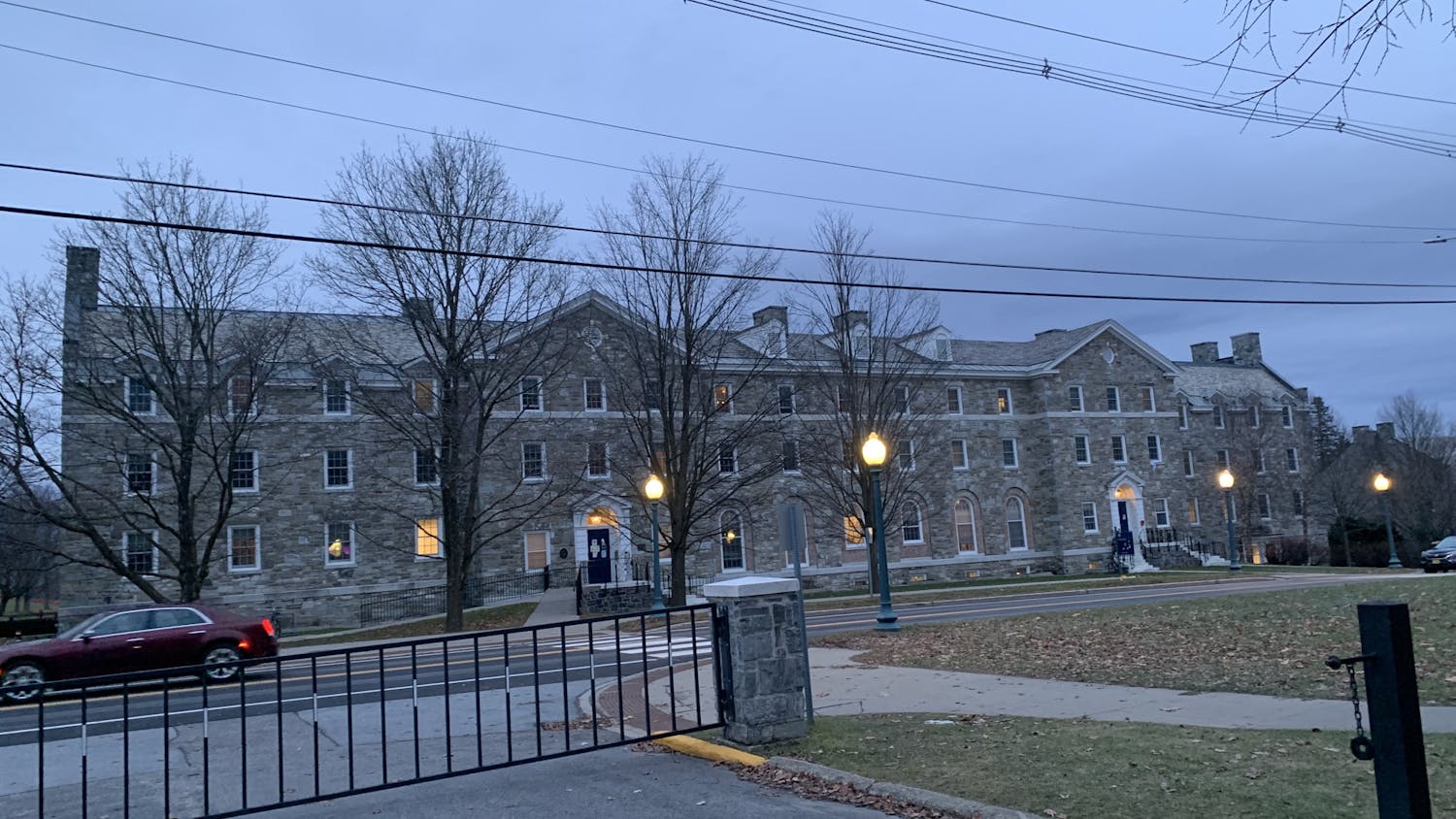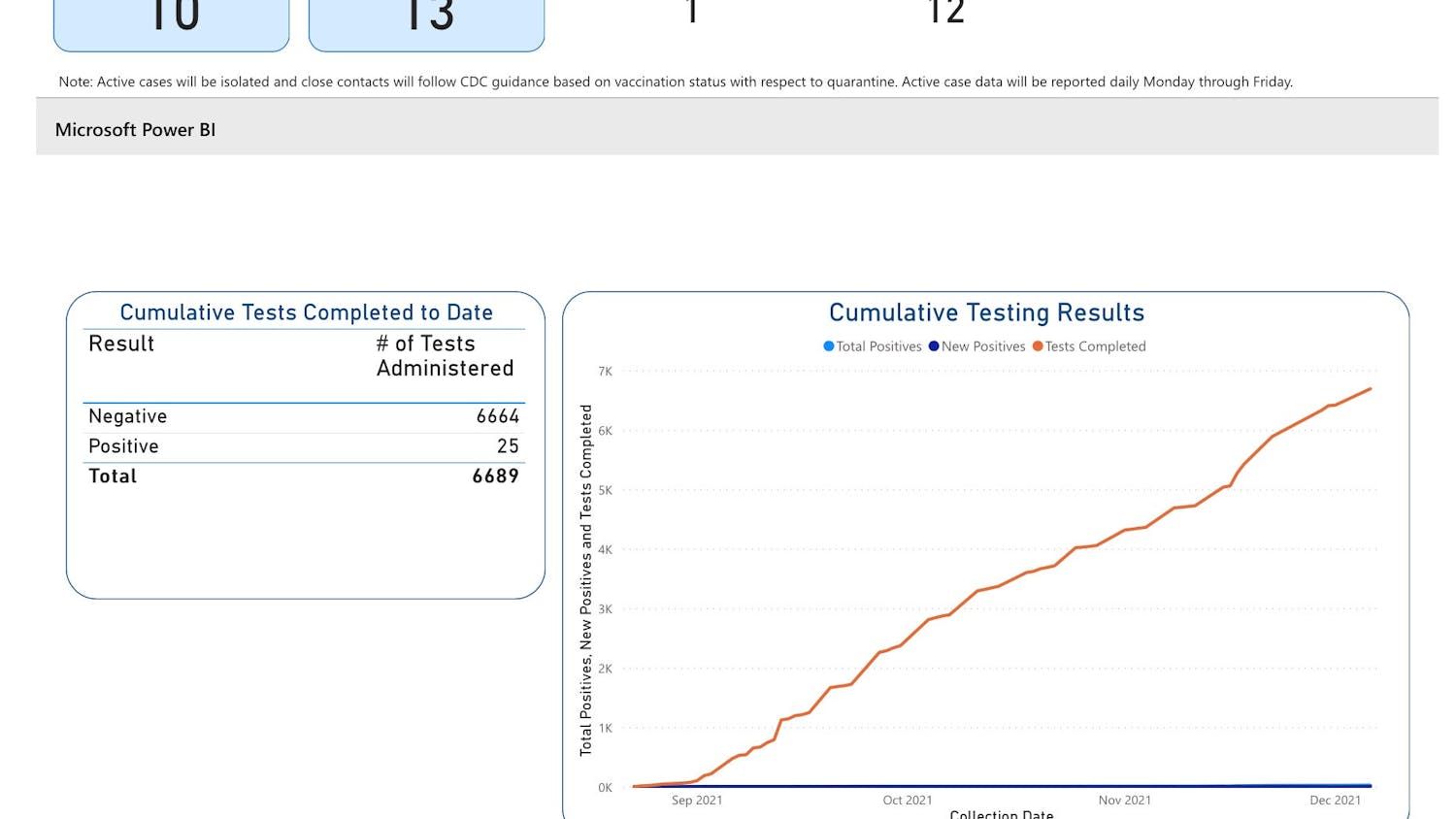Content Warning: This article contains mentions of student deaths.
We won’t sugarcoat it. It’s been a difficult semester. We’ve continued to navigate the impacts of the Covid-19 pandemic, the combination of over-enrollment and understaffing and the devastating loss of two of our own peers in the class of 2023. At times, it's felt as if things have been hanging on by a thread.
We’ve published nine editorials this fall, most of which touch on these topics, implicitly or explicitly. For our tenth and final editorial of the semester, we’re returning to them to evaluate trends and to parse through where progress still needs to be made going into J-term and the spring semester.
Covid-19 Policies and Communication
We’ve appreciated the email updates that outline health and safety protocols, but rhetoric that says to “avoid crowded gatherings” and “take care of yourself” puts an undue onus on students to self-regulate instead of relying on systematic infrastructure like mandatory testing. This advice is also hard to follow within Middlebury’s current structure — we attend at least one “crowded gathering” when we sit down to dinner in the dining halls every night. The college needs to institute Covid-19 policies using a top-down, consistent approach — anything that can be termed “optional” is not enough as the most cautious of us will engage in testing and self-isolation while the others will not.
While we support the decision to require pre-arrival testing before J-term, testing before coming to campus still presents financial and logistical burdens to students. The extension for pre-arrival testing in J-term from three days to five indicates some level of acknowledgement of these challenges but it still does not alleviate other issues, like out of pocket testing costs or a lack of testing options in students’ hometowns. For the third time this semester, we are asking that the college provides and requires weekly, on-campus testing in order to keep us safe.
Supporting College Staff
The $1k retention bonus does not address the root causes of the current staffing shortage at the college. More so, an additional one-thousand dollars doesn’t make much of a dent when it comes to supporting a family and keeping up with the cost of living in Addison County. We need to invest in long term solutions — namely hiring more staff and raising wages without compression. We cannot rely on band-aid solutions in a time of crisis. We hope that the administration will seriously consider and prioritize the well-being of staff going forward. A nationwide labor shortage cannot be an excuse to allow Middlebury to be an unsustainable workplace.
Recognizing the Need for an Overhaul of Mental Health Services
While the college has offered a few events branded as “stress-busters” — such as building a stuffed animal or playing with puppies — these function more as quick study breaks. Though we appreciate them, they do not adequately fill in the gaps in Middlebury’s mental health infrastructure. We’ve again and again reaffirmed that students are struggling. Not knowing what students need can no longer be an excuse. We require in-person counseling, a school psychiatrist, the eradication of mandatory leave policies and more counselors of color, to start. We appreciate the faculty vote that extended the drop deadline and re-instituted the CR/NCR option — but again, this serves as a potential respite from certain stressors. It does not address the root causes of the mental health crisis that has been exacerbated by campus culture and inadequate resources. We feel that as students, we have been engaging in more transparent and vulnerable conversations regarding mental health with each other. We hope that the college will join us.
With all of these issues, the college’s current means of tackling them is falling short. It’s time to move beyond short-term, band-aid solutions; we need to fix problems at their source. The college’s decisions need to to be proactive — not reactive — and we are asking Middlebury to consider our concerns on all three of these fronts.




